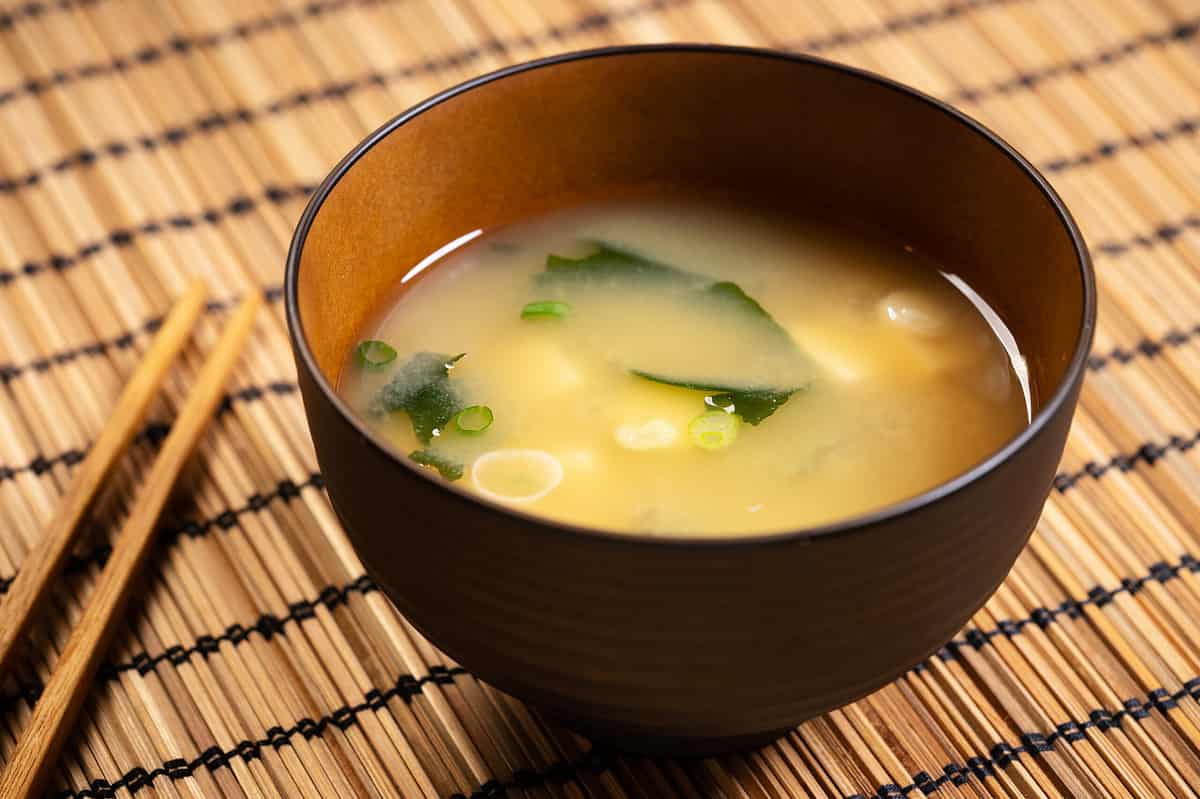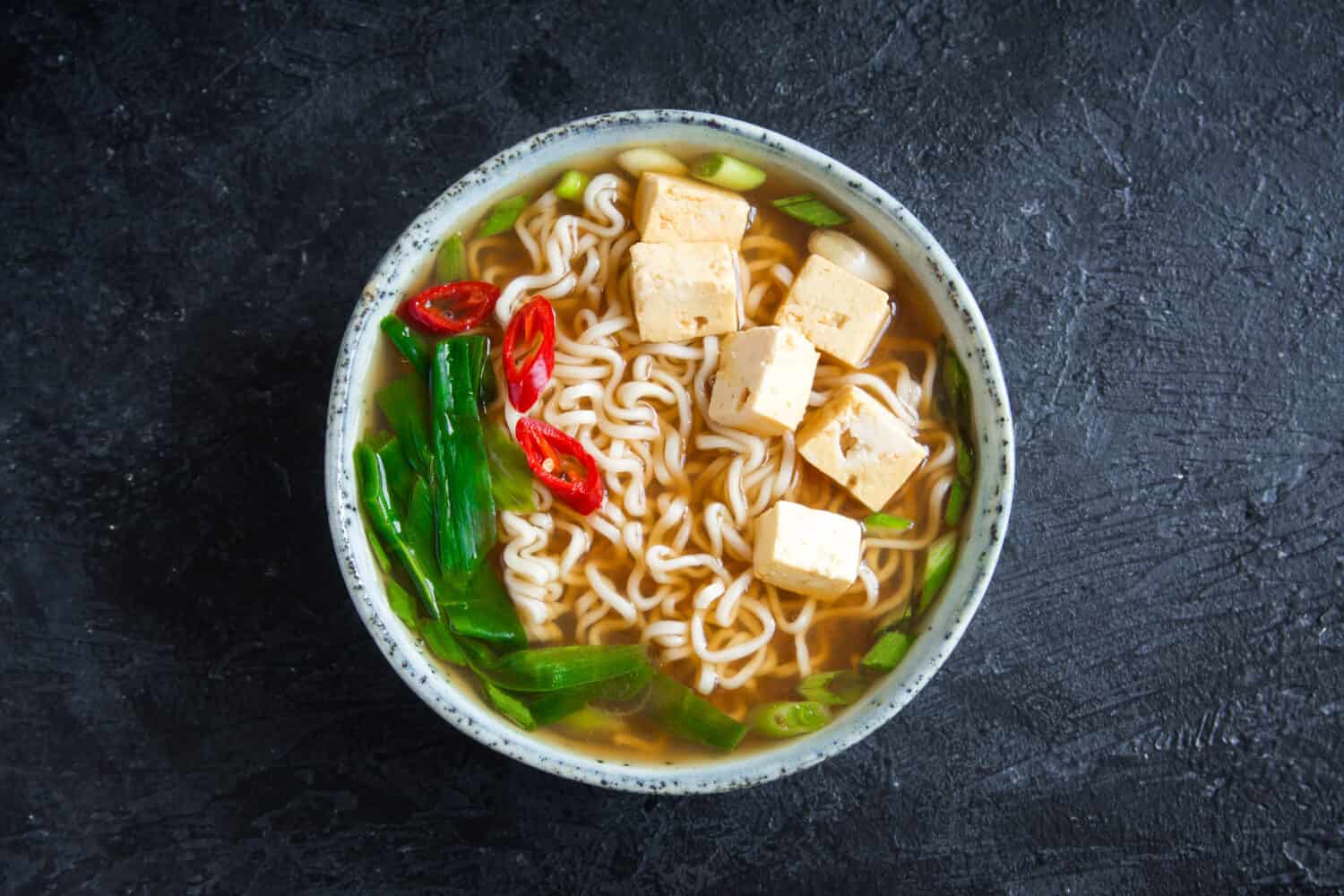If you love getting miso soup as your appetizer at a sushi or hibachi restaurant, then you're in luck! Miso is not just a delicious traditional Japanese soup, but it is a very healthy dish that can offer some great health benefits. Let's take a deeper look at what miso is, its nutritional value, and the health benefits it can offer.
What Is Miso Soup?
Miso is a traditional Japanese condiment made of soybeans. It's a thick paste that is fermented. Miso is described as having an umami flavor, meaning savory and rich. Even though it's made traditionally from soybeans, it can also be made from other beans. This paste is used to make the soup stock we know as miso soup.

©SherSor/Shutterstock.com
Nutritional Value
Miso is considered healthy for you because it offers a good amount of minerals and vitamins. It has protein, sodium, manganese, vitamin K, vitamin B, copper, zinc, iron, calcium, magnesium, phosphorus, selenium, and choline. If the miso is made from soybeans, it is seen as a complete protein because it has all the amino acids needed for human health.

©sasazawa/Shutterstock.com
Health Benefits
Miso offers digestion benefits because of its probiotic properties. Because miso is fermented, it grows the probiotic strain called A. oryzae. This strain has been studied and shown to reduce symptoms of digestive diseases like inflammatory bowel system.
Miso has also been studied to reduce the risk of certain cancers. There are studies that show that diets high in salt can cause stomach cancer. Even though miso has a higher salt content, this study shows that miso does not lead to an increased risk of cancer like other foods high in salt. There are also animal studies that have shown eating miso can reduce the risk of colon, breast, and lung cancers.
The nutrients that miso contains can also help improve immune system function. Having a healthy gut flora is important for our bodies to function on many levels. With its probiotic qualities, it can keep the gut healthy, which in turn can boost our immunity. This study shows that consuming foods rich in probiotics can help the body fight off infection better and reduce the risk of needing antibiotics by 33%.
The image featured at the top of this post is ©Oksana Mizina/Shutterstock.com.

